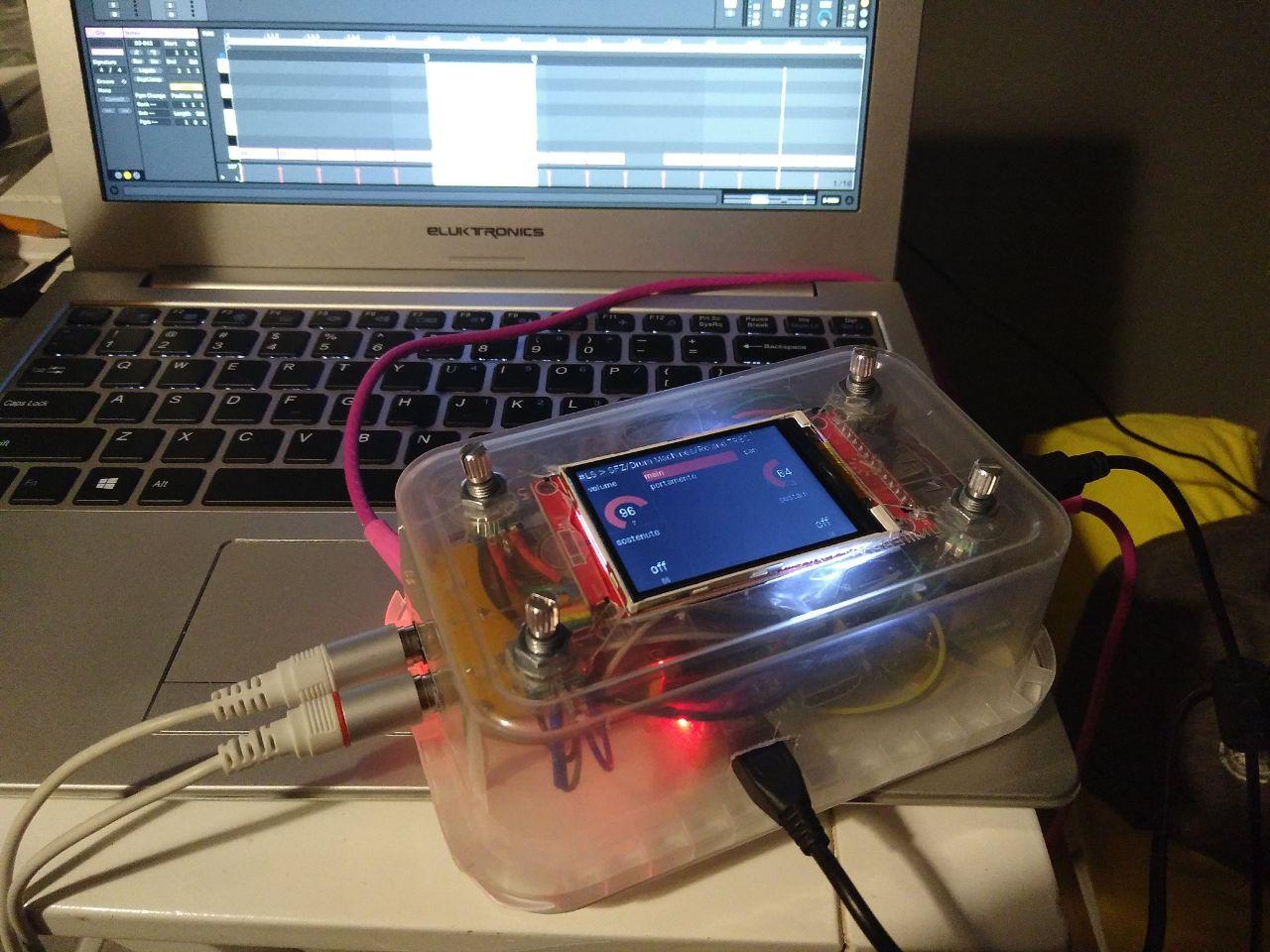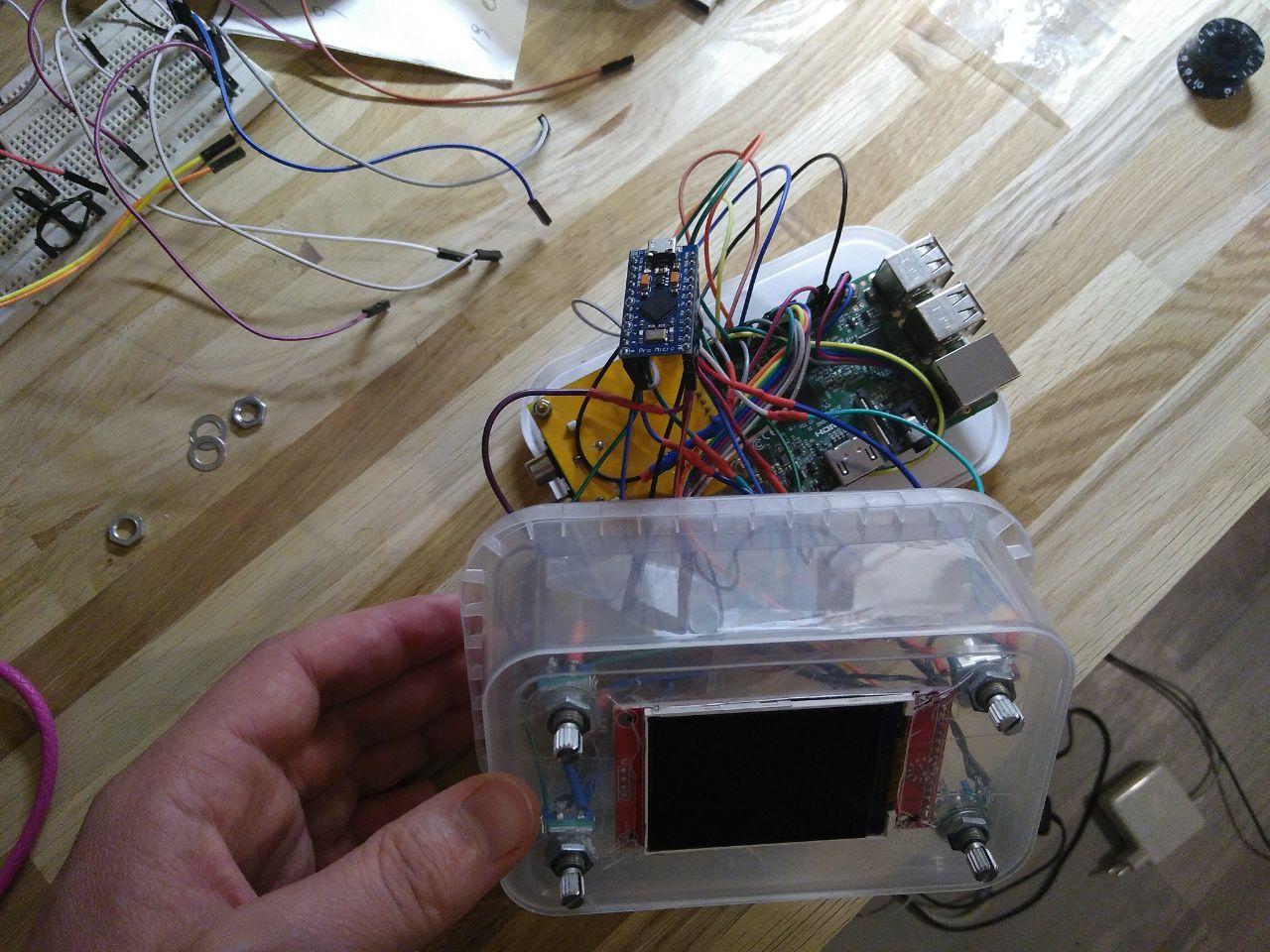I’ve decided to build zynthian from what I have laying around as my quarantine project, and here’s my almost success case. No fancy enclosure yet, just a box from frozen vegan patties, but still I’m happy with it.
Here’s what’s inside:
- RPI 3
- Cheap Chinese DAC
- Cheap Chinese screen (without touch)
- Here’s the interesting part: arduino pro micro clone instead of multiplexor for interfacing the encoders
- a lot of messy wires and sloppy soldering
I’d like to say huge thanks to @riban for helping with arduino code
I also made pro micro act as usb midi device, so I can connect it to my laptop with simple micro usb cable. The code still needs some adjustments, though.
I plan to build nice enclosure for all this as a next step, and maybe add midi din input, if it won’t conflict with usb midi.

